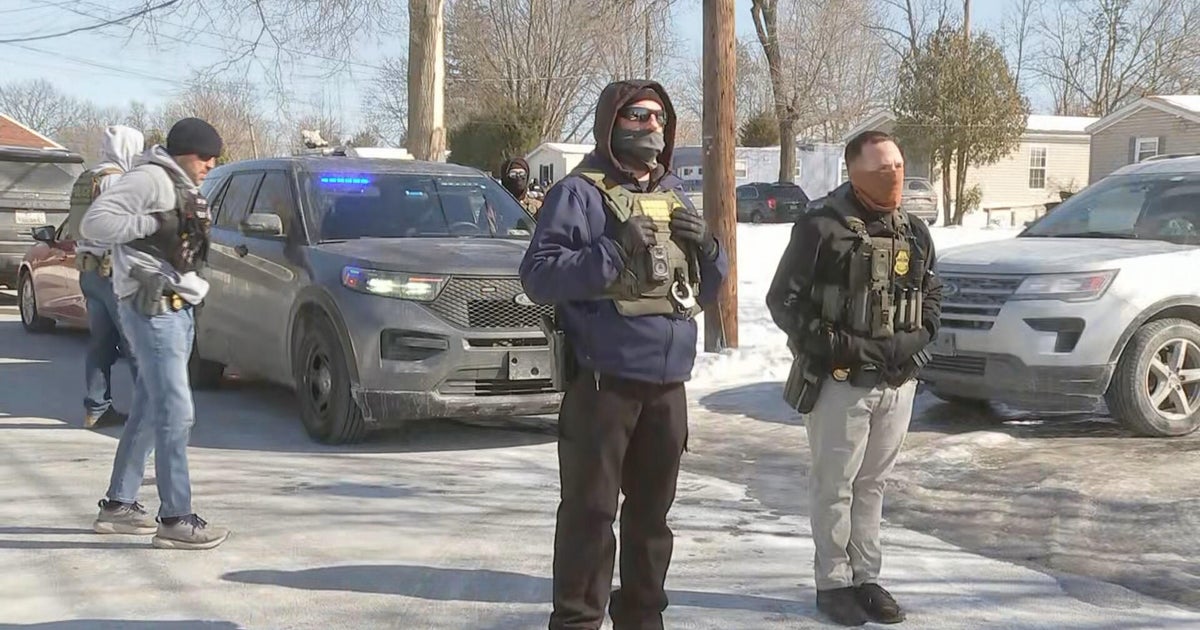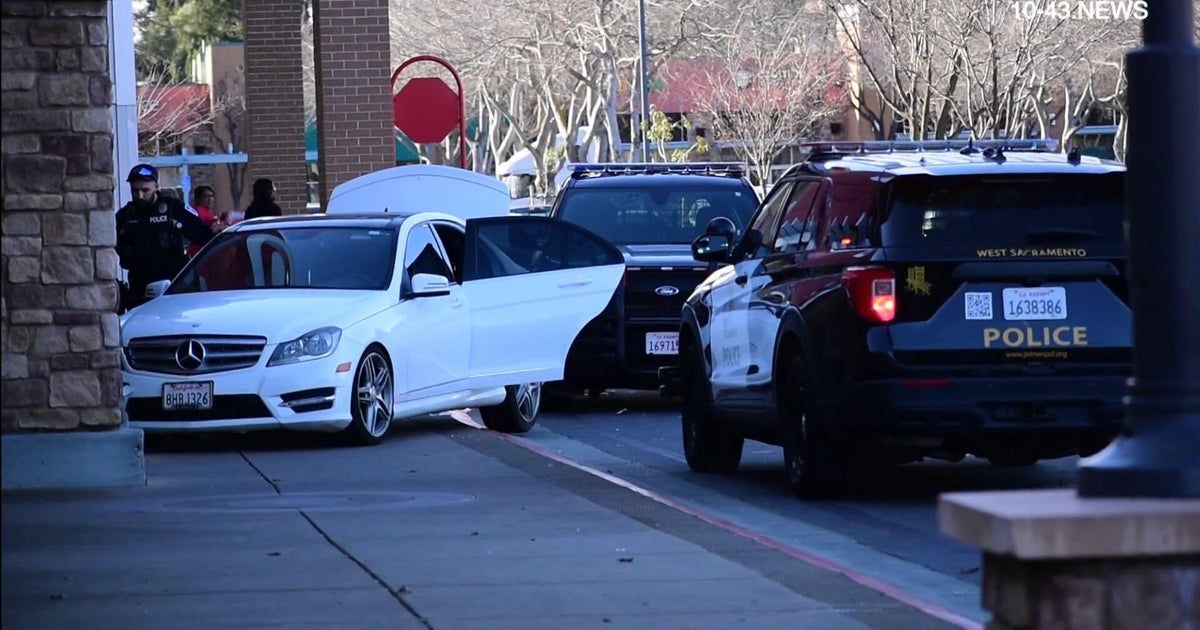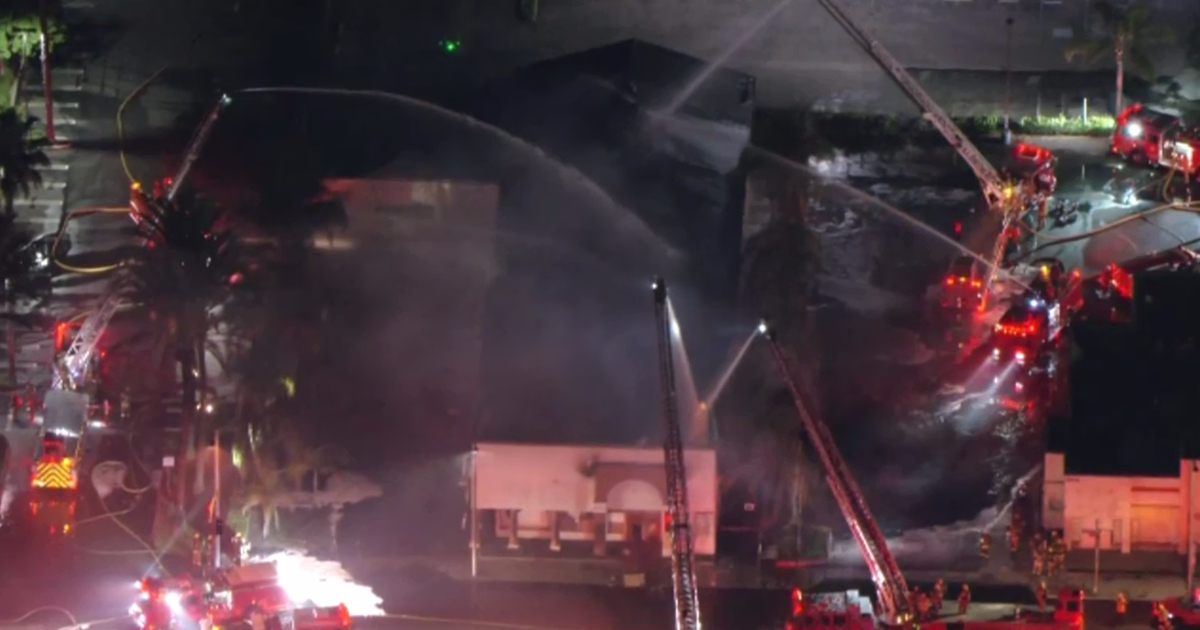Norfolk Southern trains causing headaches for Beaver County residents and first responders
BEAVER, Pa. (KDKA) — People living on a property in Beaver County are finding themselves stranded multiple times a week.
The reason is Norfolk Southern trains stop for hours. The issue is only increasing, and they fear the worst is yet to come.
When you visit Bridgewater Crossings, it's an attractive property with views of the Ohio River and trains passing by. It's what Kathy Eckelberger thought when moving to the condo complex about a month ago.
"We all agree that when we moved here, we knew there were trains and there would be a periodic train going through that you would be stopped," Eckelberger said.
What she and her neighbors didn't expect was Norfolk Southern trains standing still and blocking the only entrance and exit to their homes. It can be from 30 minutes to nearly six hours. If they're not stopped, they're moving at a snail's pace or the train has passed but the crossing gates are still down.
"You could probably just walk right across this, step up on the train and walk right across. That's how slow it's going," Eckelberger said.
Chuck Betters, owner and builder of the property, said they only opened one year ago, and when he proposed the project years earlier, it wasn't a problem.
"They've diminished the value of my property significantly," Betters said. "I wouldn't have invested the amount of millions of dollars I did."
He's called Norfolk Southern on multiple occasions and said he never gets a straight answer. The same goes for Fire Chief and Borough Council President Chuck Bates.
"They said, 'Nothing's changed in our program. They shouldn't be stopped there unless there's a problem with a locomotive or an accident ahead,' and I said, 'Well, they've been stopping and we're getting kind of tired of it,'" Bates said.
In March 2022 when responding to a small kitchen fire, fire crews got trapped on the property. If they got called to another emergency, they wouldn't have been able to go.
"It's impeding our ability to do our jobs," Bates said.
Until the past year, he doesn't ever remember trains stopping at the Bridgewater Crossing for an extensive period of time.
"These trains keep getting longer and longer, that's why they're stopped here waiting to get into Conway yards, waiting on a signal," Bates said.
The crossing is 2.11 miles west of the railroad's yard, and a half mile east of the Beaver Crossing.
"If they would just stop before the Beaver crossing, they have 3-plus miles of nothing that they would be impacting," Bates said.
He hopes Norfolk Southern and lawmakers take action before it's too late.
"Just stop. Keep my tracks open here. Let my people get in and out. Use their heads," Bates said.
KDKA-TV reached out to Norfolk Southern for comment. Spokesperson Connor Spielmaker said, in part:
"Every day, we work hard to keep our trains moving safely and efficiently to deliver the goods that power the U.S. economy and be a good neighbor in the communities we not only operate in, but live in. Whenever our trains experience a delay, our teams work hard to minimize the length of time we may have to occupy a crossing. Wherever there is a more acute, recurring issue, we engage with local communities to identify long-term solutions. We never want to inconvenience any member of the community with a stopped train."
He also said, "Often, train operations have to stage at specific points outside of the yard to allow others to pass by," and explained that blocked crossings became more prominent in recent years due to labor shortages.
Bridgewater officials said so far, they have not heard from Norfolk Southern to find a long-term solution. In the meantime, Betters said he's in the process of filing a lawsuit against the railroad.
When it comes to laws, there are not any that require trains to move in the case of an emergency. Previous attempts at proposals regarding this issue failed at the state and federal levels. However, there is promise. One part of the proposed bipartisan Railway Safety Act, sponsored by U.S. Senators Bob Casey and John Fetterman, would prevent blocked crossings.







